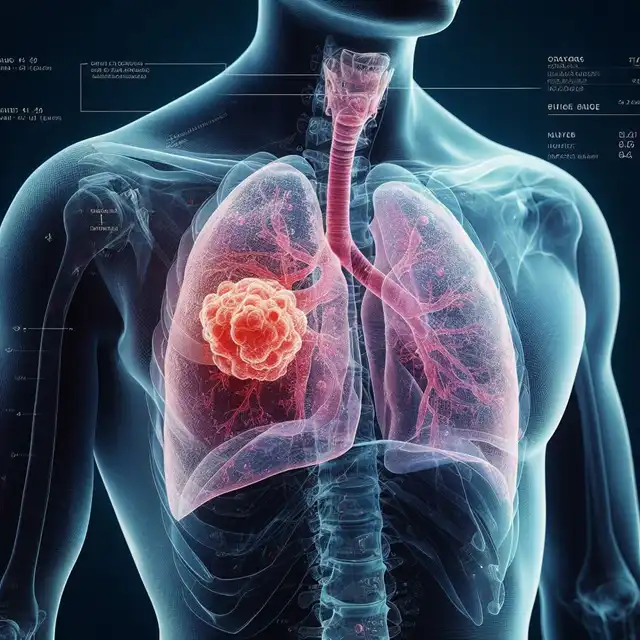Chip Breakthrough: Early Lung Cancer Treatment Assessment via Blood Tests
- Normal Liver Cells Found to Promote Cancer Metastasis to the Liver
- Nearly 80% Complete Remission: Breakthrough in ADC Anti-Tumor Treatment
- Vaccination Against Common Diseases May Prevent Dementia!
- New Alzheimer’s Disease (AD) Diagnosis and Staging Criteria
- Breakthrough in Alzheimer’s Disease: New Nasal Spray Halts Cognitive Decline by Targeting Toxic Protein
- Can the Tap Water at the Paris Olympics be Drunk Directly?
Chip Breakthrough: Early Lung Cancer Treatment Assessment via Blood Tests
- Should China be held legally responsible for the US’s $18 trillion COVID losses?
- CT Radiation Exposure Linked to Blood Cancer in Children and Adolescents
- FDA has mandated a top-level black box warning for all marketed CAR-T therapies
- Can people with high blood pressure eat peanuts?
- What is the difference between dopamine and dobutamine?
- How long can the patient live after heart stent surgery?
Chip Breakthrough: Early Lung Cancer Treatment Assessment via Blood Tests.
A newly developed chip can assess the effectiveness of cancer treatment through blood tests in the fourth week.
Researchers have developed a chip that can analyze circulating tumor cells in a patient’s blood, enabling treating physicians to determine the effectiveness of lung cancer treatment as early as the fourth week. The information provided by the chip allows for adjustments in treatment methods to meet the patient’s needs and improve treatment outcomes.
Non-small cell lung cancer (NSCLC) accounts for approximately 80-85% of lung cancers. Current treatment methods involve a combination of chemotherapy and radiation, followed by a year-long immunotherapy. Assessing how an individual responds to treatment is crucial, but evaluating whether cancer is likely to spread takes time, which not every patient has.
Now, researchers at the University of Michigan (U-M) have developed a chip that can analyze circulating cancer cells in a patient’s blood and inform the primary physician about the effectiveness of lung cancer treatment before the fourth week.
Shruti Jolly, co-corresponding author of the study, stated, “Currently, we typically have to wait several weeks to months to fully assess the effectiveness of cancer treatment.” However, with this chip, we might be able to avoid prolonged ineffective treatments, swiftly transitioning to alternative therapies, thus sparing patients from unnecessary side effects. This technology has the potential to transform cancer diagnostics from delayed single assessments to more continuous monitoring, promoting the delivery of personalized cancer treatment.”
CT scans are commonly used to determine whether tumors are growing or shrinking, but only significant changes are easily detectable. Needle biopsies can provide more precise information but are invasive and cannot be performed frequently, failing to offer up-to-date information regularly.
As a result, researchers turned to liquid biopsy, a detection method that searches for signs of cancer in a patient’s blood, such as circulating tumor cells. Unlike needle biopsies, blood samples can be collected more frequently, but they only become effective when the tested cells reach detectable levels. Researchers noted that lung cancer faced unique challenges in developing a means to monitor treatment through blood tests, possibly because previous tests targeted a protein on the cell surface not commonly found in this type of cancer.
Sunith Nagrath, another corresponding author of the study, stated, “We are looking for more sensitive cancer markers to closely monitor treatment progress.”
Nagrath’s research team developed the “GO chip” in 2013, which exclusively captures circulating tumor cells (CTC), successfully addressing shortcomings of other detection methods. Antibodies installed on graphene oxide (GO) nanosheets on the chip can identify various cancer-specific protein markers on the cell surface. As blood passes through the chip’s channels, antibodies accumulate these markers, eventually collecting enough. Once trapped in place, researchers can count the cells, confirm if they are cancer cells, and determine the biochemical characteristics of cells at different stages of treatment in different patients.
To test if the GO chip could monitor the effectiveness of lung cancer treatment, researchers collected CTCs from 26 stage 3 NSCLC patients undergoing chemotherapy and immunotherapy. Samples were collected before treatment initiation and during the first, fourth, tenth, eighteenth, and thirtieth weeks of treatment.
They observed that CTCs decreased during the treatment process, with a greater reduction indicating a significantly extended progression-free survival (PFS). If, by the fourth week of treatment, the number of CTCs did not decrease by at least 75%, the patient’s cancer was more likely to persist after treatment. The PFS for these patients was 7 months, while patients with a substantial decrease in CTCs had an average PFS of 21 months.
They also found that cancer patients with unresponsive CTCs activated genes that could make cancer more resistant to treatment. This information may aid in developing targeted treatment methods but requires further research.
The study was published in the journal “Cell Reports.“

Chip Breakthrough: Early Lung Cancer Treatment Assessment via Blood Tests
References:
https://www.nature.com/articles/nnano.2013.194
(source:internet, reference only)
Disclaimer of medicaltrend.org
Important Note: The information provided is for informational purposes only and should not be considered as medical advice.



